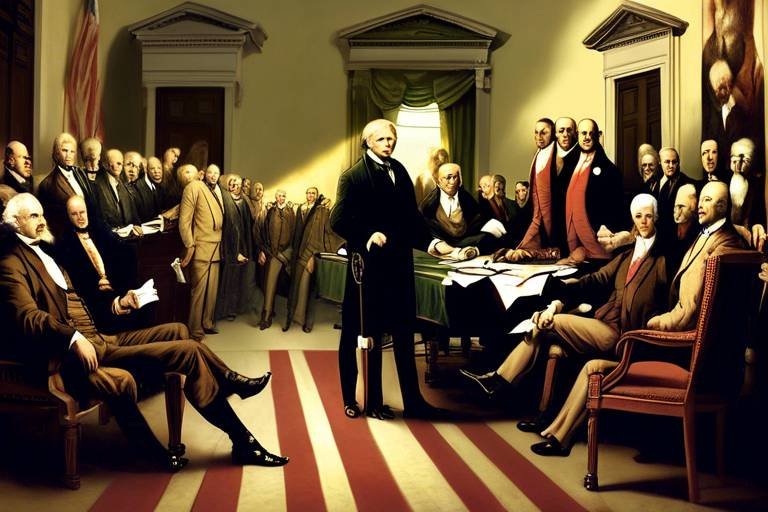The Philosophy of Karl Marx and its Impact on Politics
This article explores the key tenets of Marx's philosophy and examines their influence on political movements, ideologies, and systems throughout history, highlighting both positive and negative consequences.
Marxism is not just a theory; it’s a lens through which we can analyze the world. At its core, Marxism critiques capitalism and advocates for a classless society where the means of production are collectively owned. Think of it as a radical approach to understanding social dynamics, where the struggles of the working class (the proletariat) against the ruling class (the bourgeoisie) take center stage. Key concepts like historical materialism and class struggle form the backbone of this philosophy, illustrating how economic forces shape societal structures and human relationships.
To truly grasp Marx's philosophy, we need to step back into the 19th century, a time of profound change. The socio-economic landscape was transforming rapidly, driven by the Industrial Revolution. Factories were popping up like mushrooms after rain, and with them came a new class of workers who toiled long hours for meager wages. This period was marked by stark inequalities, which undoubtedly influenced Marx's thoughts. He observed how the capitalist system created vast wealth for a few while leaving the majority in poverty, and this disparity fueled his desire for a revolutionary change.
The Industrial Revolution was a game-changer, fundamentally altering societal structures. It birthed a distinct class system where the bourgeoisie thrived at the expense of the proletariat. Imagine a seesaw where one side is heavily weighted down while the other floats effortlessly. This imbalance was at the heart of Marx's views on class struggle. He argued that the conflicts between these classes were not just inevitable but essential for societal progress. The struggle for better working conditions, fair wages, and social justice became the rallying cries of the oppressed, and Marx believed that this fight would ultimately lead to the overthrow of capitalism.
Marx's focus on the plight of the working class was profound. He saw capitalism as a system that exploited labor, where workers were treated as mere cogs in a machine. This exploitation was not just economic; it was deeply social and psychological. Marx envisioned a world where workers would reclaim their rights and dignity. His ideas aimed to empower the working class, promoting a sense of solidarity among them. This was revolutionary at the time and continues to resonate today, as workers around the globe still fight for their rights against oppressive systems.
One of Marx's most critical contributions was his identification of the inherent contradictions within capitalism. He predicted that these contradictions would lead to its eventual downfall. For instance, while capitalism thrives on competition, it also creates monopolies, concentrating wealth and power in the hands of a few. This paradox raises questions about sustainability and equity in our current economic discussions. Today, as we grapple with issues like income inequality and corporate greed, Marx's critiques remain strikingly relevant, prompting us to reconsider the very foundations of our economic systems.
Marx's major works, including The Communist Manifesto and Das Kapital, are foundational texts in political theory. In The Communist Manifesto, Marx and Engels famously declared, “Workers of the world, unite!” This rallying cry encapsulates the essence of Marxism: a call for collective action against oppression. Meanwhile, in Das Kapital, Marx delves into the mechanics of capitalism, analyzing how labor and capital interact. These texts not only laid the groundwork for future political movements but also provided a framework for understanding the complexities of class relations.
Marx's philosophy has inspired a plethora of political movements worldwide, shaping ideologies and leading to revolutions. His ideas have been adapted by various groups, each interpreting Marxism through their unique cultural lenses. This adaptability is one of Marxism's strengths, allowing it to remain relevant in diverse contexts.
Marxism laid the groundwork for both communist and socialist ideologies. These movements interpreted Marx's ideas in different ways, leading to various implementations across the globe. While some sought to establish a dictatorship of the proletariat, others aimed for more democratic forms of socialism. Regardless of the approach, the influence of Marx's ideas has been profound, reshaping political landscapes from Russia to China and beyond.
In contemporary politics, Marxist ideas have evolved significantly. Modern leftist movements have adapted these principles to address current social and economic issues, such as climate change, racial injustice, and global inequality. Think of it as a living organism, continually adapting to its environment. This evolution showcases the enduring relevance of Marxism, as activists and theorists continue to draw on its insights to challenge the status quo and advocate for systemic change.
- What is Marxism? - A socio-political and economic theory critiquing capitalism and advocating for a classless society.
- How did the Industrial Revolution influence Marx's ideas? - It highlighted the exploitation of the working class, shaping his views on class struggle.
- What are the main texts of Marxism? - Key texts include The Communist Manifesto and Das Kapital.
- How has Marxism influenced modern politics? - It has inspired various leftist movements addressing contemporary social and economic issues.

Understanding Marxism
Marxism is more than just a theory; it’s a lens through which we can view the world, particularly the socio-political and economic dynamics that shape our lives. At its core, Marxism critiques the capitalist system, arguing that it inherently leads to inequality and class struggle. But what does that really mean? To understand Marxism, we need to dive into its foundational concepts, which include historical materialism and class struggle.
Historical materialism is the idea that the material conditions of a society—its economy, technology, and resources—determine its social structures and cultural beliefs. Essentially, Marx argued that the way we produce goods and services shapes our social relationships and institutions. This perspective flips the script on traditional views that prioritize ideas and culture as the primary drivers of societal change. Instead, Marx believed that it’s the economic base that shapes the ideological superstructure, including politics, law, and even religion.
Now, let’s talk about class struggle. Marx posited that society is fundamentally divided into classes, primarily the bourgeoisie (the ruling class who owns the means of production) and the proletariat (the working class who sell their labor). This division creates a tension that drives historical change. As the proletariat becomes increasingly aware of their exploitation, they are likely to rise against the bourgeoisie, leading to revolutionary changes. It’s like a pressure cooker; the more steam builds up, the more likely it is to explode. This struggle is not just a theoretical concept for Marx; he viewed it as the engine of history itself.
To illustrate these concepts further, let’s consider a simple table that outlines the primary components of Marxism:
| Concept | Description |
|---|---|
| Historical Materialism | The idea that material conditions shape societal structures and ideologies. |
| Class Struggle | The conflict between different classes, particularly the bourgeoisie and the proletariat. |
| Means of Production | The tools and resources used to produce goods and services, owned by the bourgeoisie. |
| Exploitation | The act of the bourgeoisie profiting from the labor of the proletariat without fair compensation. |
Marx's analysis doesn't stop at just identifying these structures; he also provides a critique of capitalism itself. He argues that capitalism is riddled with contradictions, such as the tendency for wealth to concentrate in the hands of a few while the majority remains impoverished. This contradiction is not just a flaw in the system; it’s a fundamental aspect that Marx believed would lead to capitalism's eventual demise.
In summary, understanding Marxism involves grasping its core principles: the influence of material conditions on society and the ongoing class struggle that defines human history. By examining these concepts, we can start to see how Marx’s ideas resonate in today’s world, where economic disparities and class tensions continue to play a significant role in shaping our lives.
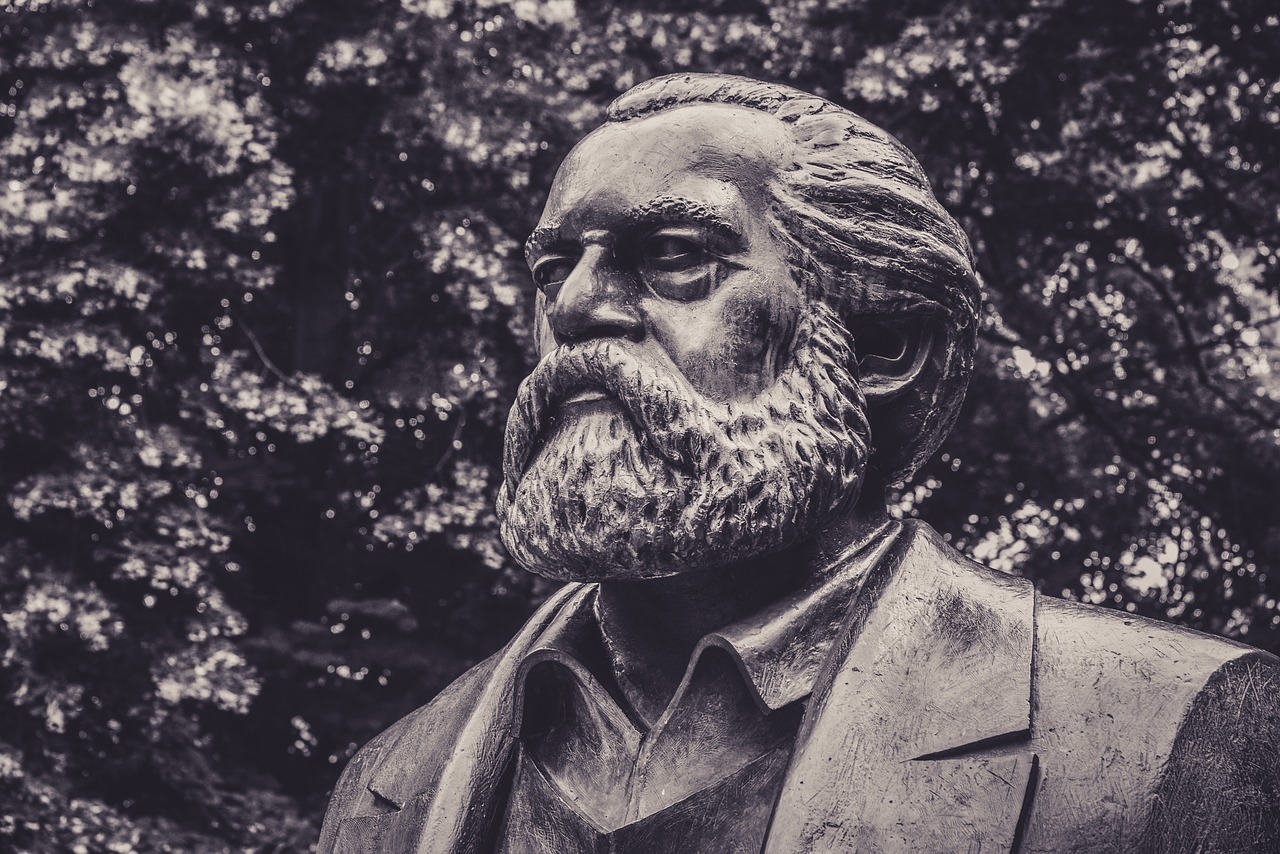
The Historical Context of Marx's Ideas
To truly understand the philosophy of Karl Marx, one must delve into the historical backdrop that shaped his thoughts. The 19th century was a period of profound transformation, marked by the rise of industrialization and the accompanying socio-economic upheaval. As factories sprouted and cities expanded, the traditional agrarian lifestyle began to fade, giving way to an urban environment that was both bustling and chaotic. This shift was not merely a change in scenery; it represented a fundamental alteration in the way people lived and worked, creating a new social dynamic that Marx would critically analyze.
The Industrial Revolution was at the heart of these changes, acting as a catalyst for the emergence of distinct social classes. The bourgeoisie, or the capitalist class, began to amass wealth and power through the ownership of production means, while the proletariat, or the working class, found themselves laboring under harsh conditions for meager wages. This stark division was not lost on Marx, who observed the growing disparities and the alienation of workers from the fruits of their labor. He argued that this exploitation was not just a byproduct of capitalism but its very essence, a theme that resonates throughout his writings.
During this tumultuous time, various political and economic theories began to surface, attempting to make sense of the new realities. Marx's ideas were influenced by earlier thinkers like Georg Wilhelm Friedrich Hegel and Friedrich Engels, who contributed to the intellectual climate of the day. However, Marx took a unique approach by grounding his theories in historical materialism, which posits that material conditions and economic factors drive societal change. This perspective allowed him to analyze history not as a series of isolated events but as a continuum shaped by class struggles and economic forces.
Moreover, the social unrest of the period, characterized by strikes, protests, and a growing labor movement, provided a fertile ground for Marx's ideas to flourish. Workers began to organize, demanding better wages and working conditions, and this collective action was something Marx believed was essential for achieving social justice. He envisioned a world where the proletariat would rise against the bourgeoisie, leading to a classless society devoid of oppression.
Marx's critique of capitalism was not merely theoretical; it was a call to action. He believed that the contradictions within capitalism—its tendency to concentrate wealth in the hands of a few while exploiting the many—would ultimately lead to its downfall. This idea of inevitable collapse was revolutionary at the time and continues to be a topic of debate among economists and political theorists today.
In summary, the historical context of Marx's ideas is crucial for understanding his philosophy. The socio-economic conditions of the 19th century, the rise of industrialization, and the emergence of class struggles were instrumental in shaping his thoughts. Marx's critique of capitalism and his vision for a classless society emerged not in a vacuum, but as a response to the realities of his time. His ideas continue to inspire and provoke discussions about social justice, economic inequality, and the role of the working class in shaping a better future.
- What is Marxism? - Marxism is a socio-political and economic theory that critiques capitalism and advocates for a classless society.
- How did the Industrial Revolution influence Marx's ideas? - The Industrial Revolution led to the emergence of distinct social classes, which informed Marx's views on class struggle and exploitation.
- What are the key texts of Marx? - Two of Marx's most influential works are The Communist Manifesto and Das Kapital.
- How has Marxism influenced modern politics? - Marx's ideas have inspired various political movements, including communism and socialism, and continue to influence leftist ideologies today.

Industrial Revolution and Class Struggle
The Industrial Revolution was not just a period of technological advancement; it was a seismic shift in the very fabric of society. Imagine a world where horse-drawn carriages were the norm, and suddenly, steam engines and factories began to dominate the landscape. This transformation created a new economic paradigm, one that significantly influenced Karl Marx's thoughts on class struggle. As factories sprouted up, they became the epicenter of a new social order, where the bourgeoisie—the owners of the means of production—gained unprecedented power and wealth, while the proletariat, or working class, found themselves shackled to long hours, minimal pay, and hazardous working conditions.
Marx observed these changes with a critical eye, recognizing that the rise of industry was accompanied by a stark division between the classes. The bourgeoisie thrived, accumulating wealth and influence, while the proletariat was left to toil in the shadows. This led to an inevitable class struggle, a conflict that Marx believed was central to human history. He argued that the interests of these two classes were diametrically opposed; the bourgeoisie sought to maximize profits, often at the expense of the workers' rights and well-being. In contrast, the proletariat's struggle for fair wages and better working conditions was a direct challenge to the capitalist system.
To illustrate the impact of the Industrial Revolution on class dynamics, consider the following table that summarizes key aspects of this period:
| Aspect | Bourgeoisie | Proletariat |
|---|---|---|
| Economic Power | Owners of factories and businesses | Laborers who sold their labor |
| Living Conditions | Affluent lifestyles, often in urban centers | Poor housing, overcrowded conditions |
| Political Influence | Significant influence on government policies | Limited political power, often marginalized |
| Work Environment | Control over labor practices | Long hours, unsafe working conditions |
This stark contrast between the bourgeoisie and the proletariat fueled Marx's belief that capitalism was inherently flawed. He famously stated that history is the history of class struggles, and the Industrial Revolution was a vivid example of this theory in action. The exploitation of workers became a rallying cry for social movements, as the working class began to organize and demand their rights. Strikes, unions, and protests emerged as workers sought to challenge the status quo, leading to a gradual awakening of class consciousness.
Marx's analysis of class struggle during the Industrial Revolution not only highlighted the injustices faced by workers but also set the stage for future political movements. His ideas inspired a wave of activism aimed at addressing the disparities created by industrial capitalism. The struggle for workers' rights became a cornerstone of socialist and communist movements, as activists sought to dismantle the capitalist structures that perpetuated inequality.
In conclusion, the Industrial Revolution was a catalyst for class struggle, a theme that would resonate throughout Marx's writings. The emergence of a distinct working class, coupled with the exploitation they faced, laid the groundwork for a revolutionary ideology that sought to create a more equitable society. As we reflect on this pivotal period, it becomes clear that the struggles of the past continue to echo in today's socio-political landscape, reminding us of the enduring relevance of Marx's insights.
- What is the Industrial Revolution? The Industrial Revolution was a period of significant industrial growth and technological advancement that began in the late 18th century, leading to the rise of factories and urbanization.
- How did the Industrial Revolution affect social classes? It created a clear division between the bourgeoisie, who owned the means of production, and the proletariat, who worked in factories under challenging conditions.
- What is class struggle according to Marx? Class struggle is the conflict between different classes in society, primarily between the bourgeoisie and the proletariat, driven by opposing interests.
- How did Marx view capitalism? Marx critiqued capitalism as a system that exploits workers, leading to inequality and social conflict, and predicted its eventual downfall.
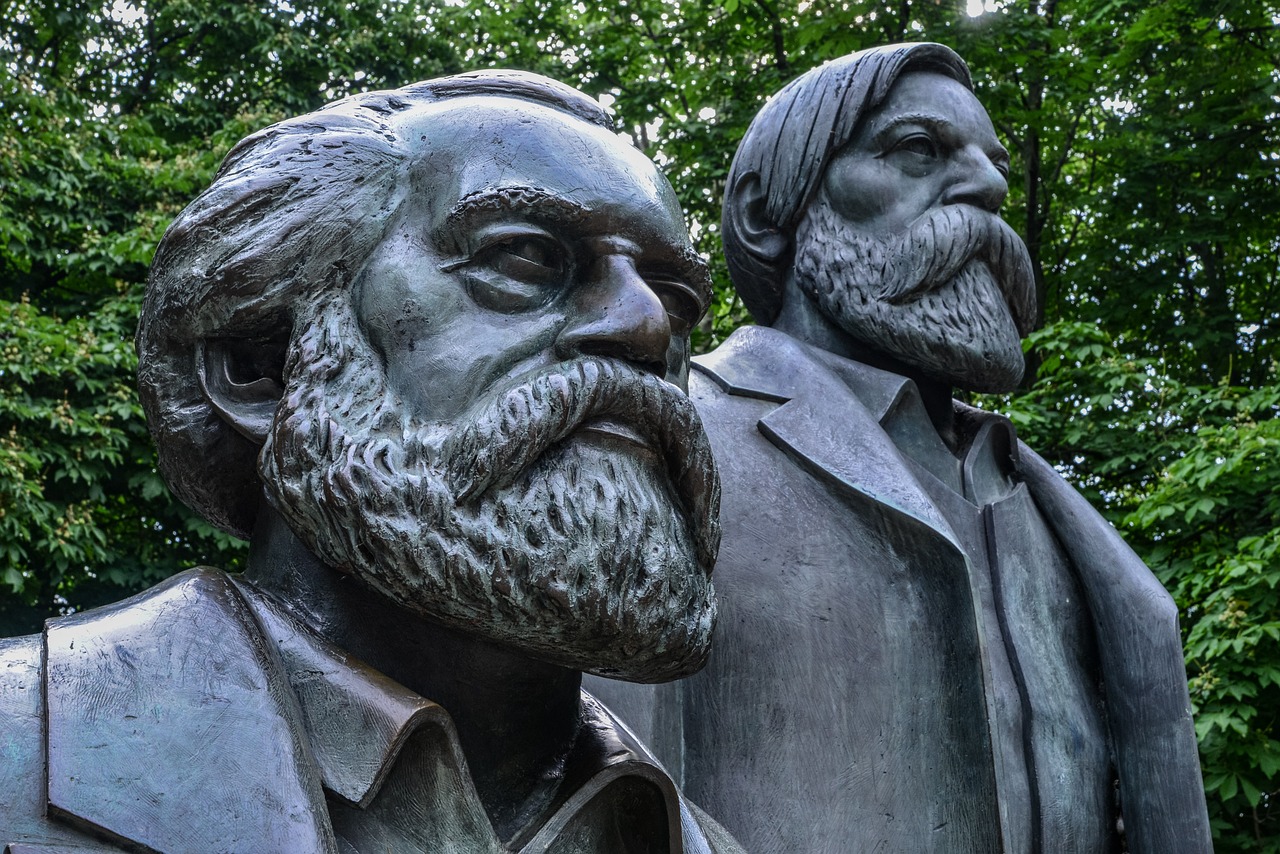
Impact on the Working Class
When we dive into the heart of Karl Marx's philosophy, we find a profound concern for the working class. At a time when the industrial landscape was transforming rapidly, Marx observed the plight of laborers who were, in many ways, the backbone of the economy yet received little in return for their hard work. The factories were bustling, but the workers were often left in the shadows, toiling for long hours under harsh conditions with minimal pay. This stark reality ignited Marx's passion for advocating change. He believed that the very system designed to create wealth was, in fact, exploiting the very individuals who generated it.
Marx's ideas were revolutionary in that they sought to empower the working class, urging them to recognize their collective strength. He argued that the workers, or the proletariat, were being pitted against the owners of production, the bourgeoisie, in a never-ending struggle for fair treatment and equitable compensation. This class struggle was not just a theoretical concept for Marx; it was a call to action. He envisioned a world where laborers would unite, overthrow the capitalist system, and establish a society where the fruits of their labor would be shared among all, rather than hoarded by a privileged few.
To illustrate the impact of Marx's ideas on the working class, consider the following key points:
- Awareness and Unity: Marx's philosophy encouraged workers to become aware of their exploitation and to unite against it. This consciousness-raising was crucial in forming labor unions and movements.
- Labor Rights: His advocacy laid the groundwork for the labor rights movements that followed, which sought to improve working conditions, wages, and hours.
- Social Justice: Marx's emphasis on social justice resonated with many, inspiring generations to fight for equality and fair treatment in the workplace.
Furthermore, Marx's thoughts on the working class have had lasting implications, seen in various labor movements and political reforms around the globe. For instance, the formation of trade unions can be traced back to the very principles he championed. These organizations have played a pivotal role in negotiating better wages and working conditions, ensuring that the voices of workers are heard in the corridors of power.
However, it’s important to recognize that the implementation of Marx's ideas has been met with both success and challenges. While many have embraced his call for solidarity and reform, others have misinterpreted or misused his theories, leading to outcomes that diverged from his original vision. The rise of authoritarian regimes claiming to be Marxist often resulted in oppression rather than liberation, showcasing the complex legacy of his impact on the working class.
In contemporary society, the echoes of Marx's philosophy continue to resonate. The gig economy, with its precarious work conditions, raises questions about the exploitation of labor that Marx warned against. Today’s workers are grappling with issues of job security and fair compensation, echoing the struggles of the 19th century. As we reflect on Marx's insights, we are reminded that the fight for the rights of the working class is far from over; it is a continuous journey that demands attention and action.
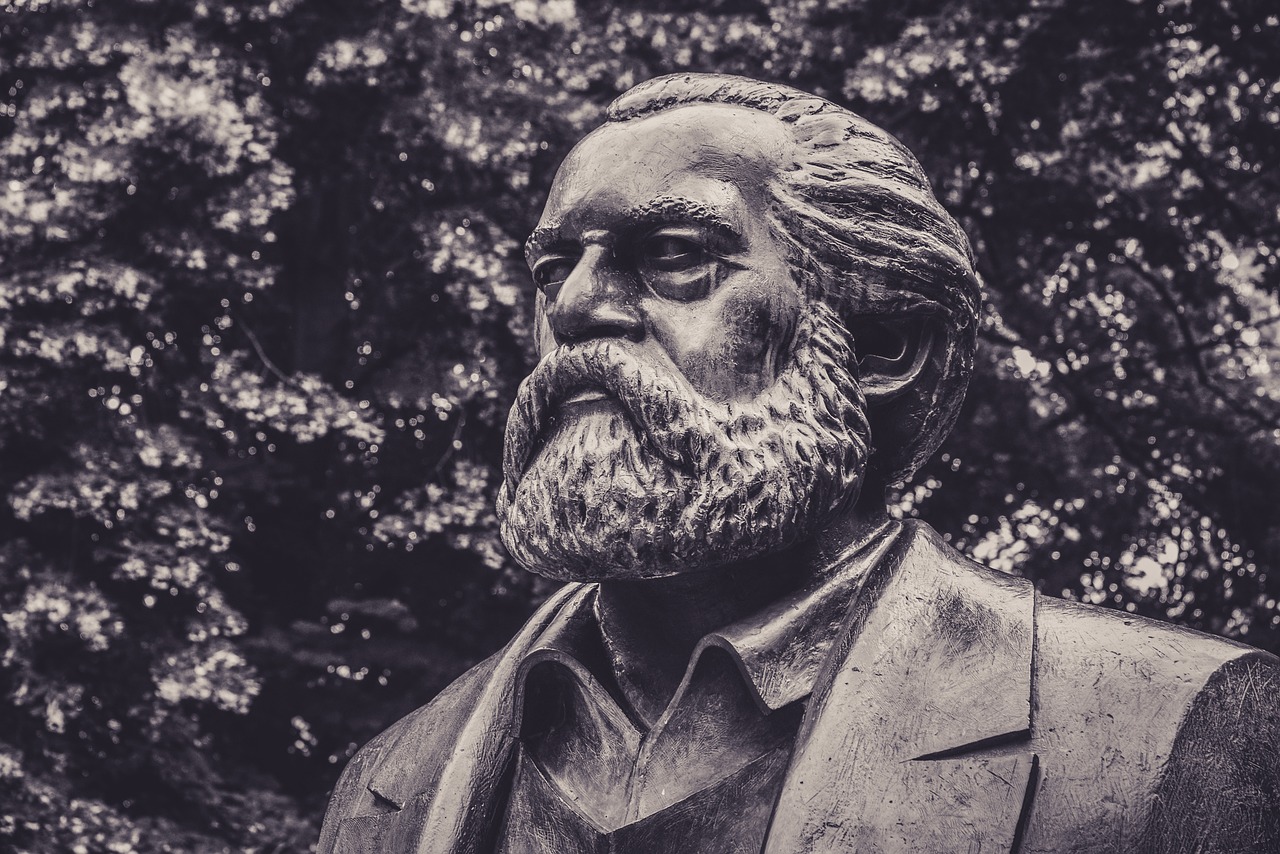
Capitalism's Contradictions
When we dive into the world of capitalism, it’s like peeling an onion—layer after layer reveals the complexities and contradictions that underpin this economic system. Marx was particularly adept at identifying these contradictions, which he argued were not just flaws but fundamental aspects of capitalism itself. One of the most striking contradictions lies in the relationship between wealth creation and wealth distribution. While capitalism is designed to generate wealth through innovation and competition, it often leads to a concentration of wealth in the hands of a few, leaving the majority struggling to make ends meet. This disparity can create social unrest and a sense of alienation among the working class, which Marx believed would eventually ignite the flames of revolution.
Another contradiction that Marx highlighted is the inherent instability of capitalism. On one hand, the system thrives on the pursuit of profit, driving businesses to expand and innovate. On the other hand, this relentless pursuit can lead to overproduction, where supply outstrips demand, resulting in economic crises. These crises are not mere bumps in the road but are, according to Marx, an inevitable outcome of a system that prioritizes profit over people. The cyclical nature of boom and bust periods raises the question: can a system that is so prone to failure truly be sustainable?
Marx also pointed out that capitalism fosters competition, which can lead to innovation and efficiency. However, this competition often comes at a cost. Businesses may cut corners, exploit workers, and degrade the environment in their quest for profit. This paradox creates a scenario where the very forces that drive economic growth also contribute to social and ecological degradation. It’s a classic case of “the more things change, the more they stay the same.” The promise of capitalism is that it will uplift society, yet the reality often falls short of this ideal.
To further illustrate these contradictions, let’s take a look at a simplified table that outlines some of the key contradictions of capitalism:
| Contradiction | Description |
|---|---|
| Wealth Concentration | Capitalism generates wealth but often concentrates it in the hands of a few, leading to inequality. |
| Instability | The system is prone to cycles of boom and bust, causing economic crises that affect the working class. |
| Exploitation | In the race for profit, workers may be exploited, and environmental concerns may be overlooked. |
| Innovation vs. Inequality | While competition drives innovation, it can also exacerbate social disparities. |
In essence, Marx's critique of capitalism is not merely an attack on the system; it’s a call to recognize its contradictions and to question whether a system built on such foundations can truly serve the needs of all. The contradictions of capitalism raise important questions about the sustainability of our economic practices and the future of our society. Are we destined to repeat these cycles, or can we learn from the past to create a more equitable system? As we navigate through the complexities of modern economies, these questions become more relevant than ever.
- What are the main contradictions of capitalism according to Marx? Marx identified several key contradictions, including wealth concentration, economic instability, exploitation of workers, and the tension between innovation and inequality.
- How do these contradictions affect society? These contradictions can lead to social unrest, economic crises, and a widening gap between the rich and the poor, ultimately questioning the sustainability of capitalism.
- Is there a solution to these contradictions? While Marx proposed a classless society as a solution, contemporary discussions focus on reforms that can address inequality and promote social justice within the capitalist framework.

Key Texts and Theories
When we dive into the world of Marxism, it’s impossible to overlook the profound impact of Karl Marx's key texts. Two of the most significant works that laid the groundwork for his theories are The Communist Manifesto and Das Kapital. These texts are not just books; they are powerful manifestos that challenge the status quo and invite readers to rethink the very fabric of society. Let's explore these essential writings and the theories they introduce.
The Communist Manifesto, co-authored with Friedrich Engels in 1848, is perhaps the most famous of Marx’s works. It distills his ideas into a concise and compelling narrative, calling for the working class to rise against the bourgeoisie. The manifesto opens with the iconic line, “A specter is haunting Europe—the specter of communism.” This phrase sets the tone for the urgency and revolutionary spirit that permeates the text. Within its pages, Marx outlines the history of society as a history of class struggles, emphasizing that the conflict between the proletariat (working class) and the bourgeoisie (capitalist class) is the driving force of historical development.
In contrast, Das Kapital, published in three volumes starting in 1867, is a more detailed and complex analysis of capitalism itself. Here, Marx delves into the mechanics of capitalist production, examining how labor, value, and capital interact. He introduces key concepts such as surplus value, which explains how capitalists profit from the labor of workers. This text is dense and philosophical, but it’s essential for understanding Marx’s critique of economic systems. Marx argues that capitalism is inherently exploitative, and he meticulously dissects its contradictions, predicting that these contradictions would eventually lead to its downfall.
To better understand the main ideas presented in these texts, let’s summarize some of the foundational theories:
| Text | Main Ideas |
|---|---|
| The Communist Manifesto |
|
| Das Kapital |
|
These texts are not just historical artifacts; they continue to resonate today, influencing contemporary political thought and action. Marx's ideas have inspired countless movements and revolutions, from the Russian Revolution to modern-day socialist parties. Each generation finds new relevance in his work, applying his theories to the ever-evolving landscape of politics and economics.
In conclusion, the key texts of Marxism are essential for anyone looking to understand the complexities of social and economic systems. They challenge us to question our assumptions about class, power, and justice. Whether you’re a seasoned scholar or a curious newcomer, engaging with Marx’s writings opens up a world of thought that is as relevant today as it was in the 19th century.
- What is the main idea of Marxism? Marxism critiques capitalism and advocates for a classless society where the means of production are communally owned.
- How did Marx view capitalism? Marx believed capitalism was exploitative and unsustainable, predicting it would eventually collapse due to its internal contradictions.
- What are some modern interpretations of Marxism? Contemporary Marxist thought often addresses issues like globalization, environmental justice, and intersectionality, adapting Marx's ideas to current social challenges.

The Communist Manifesto
This article explores the key tenets of Marx's philosophy and examines their influence on political movements, ideologies, and systems throughout history, highlighting both positive and negative consequences.
Marxism is a socio-political and economic theory that critiques capitalism and advocates for a classless society. This section delves into its foundational concepts, including historical materialism and class struggle.
To fully grasp Marx's philosophy, it's essential to understand the historical context in which he wrote. This section explores the socio-economic conditions of the 19th century that shaped his thoughts.
The Industrial Revolution marked a significant shift in societal structures, leading to the emergence of distinct social classes. This subheading examines how these changes informed Marx's views on class struggle.
Marx focused on the plight of the working class, arguing that capitalism exploited labor. This section discusses how his ideas aimed to empower workers and promote social justice.
Marx identified inherent contradictions within capitalism, predicting its eventual downfall. This part analyzes his critiques and their relevance in contemporary economic discussions.
Marx's works, including and Das Kapital, are foundational texts in political theory. This section outlines the main ideas presented in these influential writings.
Marx's philosophy has inspired numerous political movements worldwide. This section explores how his ideas have been adapted by various groups, leading to revolutions and reforms.
Marxism laid the groundwork for communist and socialist ideologies. This subheading examines how these movements interpreted Marx's ideas and their impact on global politics.
In contemporary politics, Marxist ideas have evolved, influencing various leftist movements. This section discusses modern interpretations and how they address current social and economic issues.
, published in 1848, is one of the most significant political documents in history. Co-authored by Karl Marx and Friedrich Engels, this manifesto serves as a rallying cry for the working class, emphasizing the need for unity and collective action. It begins with the powerful statement, “A spectre is haunting Europe—the spectre of communism.” This line encapsulates the fear and anxiety that the ruling classes felt towards the growing discontent among the proletariat.
The manifesto outlines the struggle between the bourgeoisie (the capitalist class) and the proletariat (the working class), arguing that history is fundamentally a history of class struggles. Marx and Engels assert that the bourgeoisie has created a world that is increasingly interconnected through capitalism, yet it simultaneously perpetuates inequality and exploitation. They argue that the only way to resolve these contradictions is through revolutionary change, leading to the establishment of a classless society.
In , several key points are highlighted:
- The historical development of society is driven by material conditions and economic factors.
- The bourgeoisie has played a revolutionary role in developing the forces of production, but it has also created its own grave diggers—the proletariat.
- The abolition of private property is essential for the liberation of the working class.
- Workers of the world must unite and overthrow their oppressors.
Through its passionate call to arms, the manifesto has inspired countless movements and revolutions across the globe. Its influence can be seen in various political ideologies and systems, from the Russian Revolution to modern leftist movements advocating for social justice and equality. However, the implementation of its ideas has often led to significant debates and controversies, with critics arguing that attempts to realize Marxist principles have resulted in authoritarian regimes.
- What is the main message of The Communist Manifesto?
The main message is the call for the working class to unite against the bourgeoisie to achieve a classless society. - How has The Communist Manifesto influenced modern politics?
It has inspired various socialist and communist movements, shaping political ideologies and revolutions worldwide. - Is Marxism still relevant today?
Yes, many contemporary movements still draw on Marxist ideas to address issues of inequality and social justice.
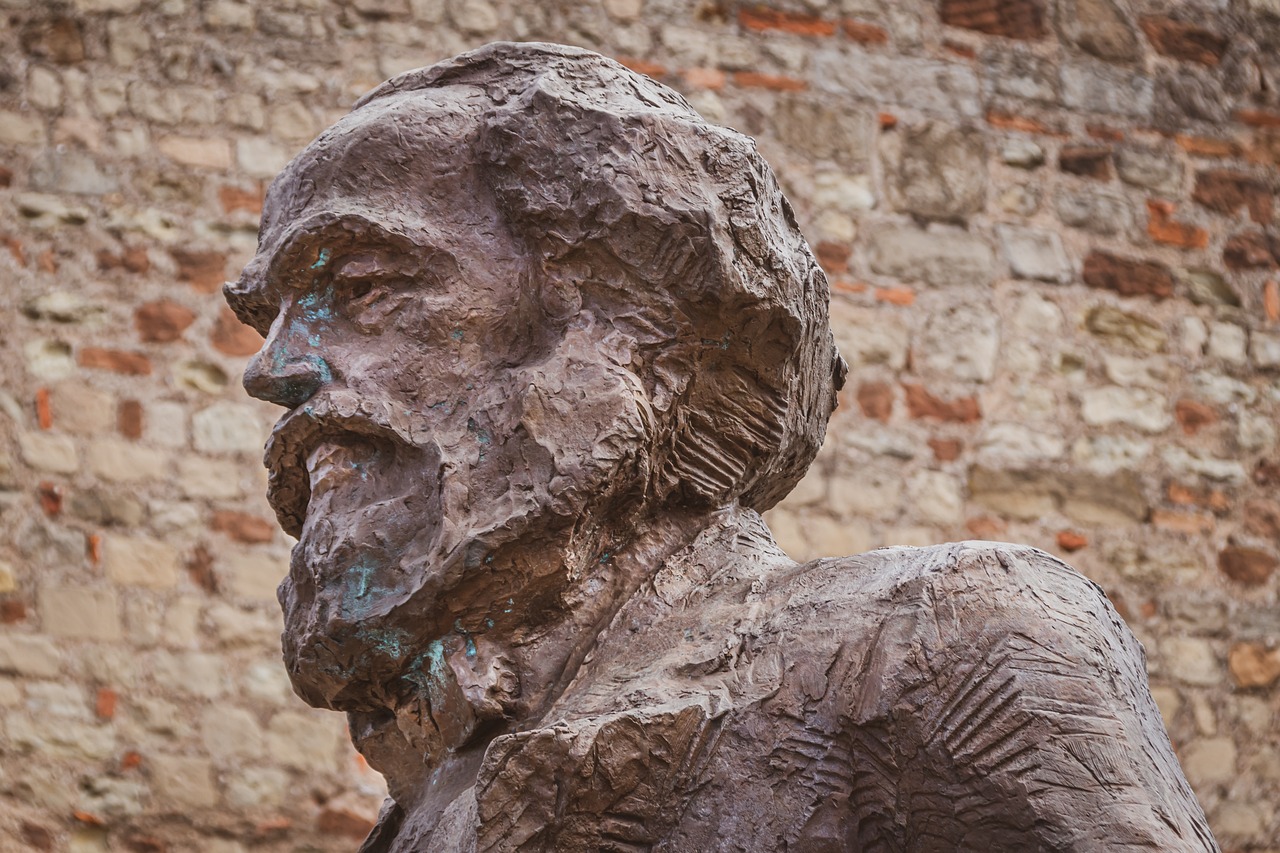
and
This article explores the key tenets of Marx's philosophy and examines their influence on political movements, ideologies, and systems throughout history, highlighting both positive and negative consequences.
Marxism is a socio-political and economic theory that critiques capitalism and advocates for a classless society. This section delves into its foundational concepts, including historical materialism and class struggle.
To fully grasp Marx's philosophy, it's essential to understand the historical context in which he wrote. This section explores the socio-economic conditions of the 19th century that shaped his thoughts.
The Industrial Revolution marked a significant shift in societal structures, leading to the emergence of distinct social classes. This subheading examines how these changes informed Marx's views on class struggle.
Marx focused on the plight of the working class, arguing that capitalism exploited labor. This section discusses how his ideas aimed to empower workers and promote social justice.
Marx identified inherent contradictions within capitalism, predicting its eventual downfall. This part analyzes his critiques and their relevance in contemporary economic discussions.
Marx's works, including The Communist Manifesto and Das Kapital, are foundational texts in political theory. This section outlines the main ideas presented in these influential writings.
Marx's philosophy has inspired numerous political movements worldwide. This section explores how his ideas have been adapted by various groups, leading to revolutions and reforms.
Marxism laid the groundwork for communist and socialist ideologies. This subheading examines how these movements interpreted Marx's ideas and their impact on global politics.
In contemporary politics, Marxist ideas have evolved, influencing various leftist movements. This section discusses modern interpretations and how they address current social and economic issues.
- What is Marxism? - Marxism is a socio-political and economic theory that critiques capitalism and advocates for a classless society.
- How did the Industrial Revolution influence Marx? - The Industrial Revolution created distinct social classes, which informed Marx's views on class struggle and the exploitation of labor.
- What are the main texts of Marxism? - The key texts include The Communist Manifesto and Das Kapital, which outline Marx's theories and critiques.
- What impact has Marxism had on modern politics? - Marxism has influenced various leftist movements and continues to shape discussions around social justice and economic equality.

Das Kapital,
This article explores the key tenets of Marx's philosophy and examines their influence on political movements, ideologies, and systems throughout history, highlighting both positive and negative consequences.
Marxism is a socio-political and economic theory that critiques capitalism and advocates for a classless society. This section delves into its foundational concepts, including historical materialism and class struggle.
To fully grasp Marx's philosophy, it's essential to understand the historical context in which he wrote. This section explores the socio-economic conditions of the 19th century that shaped his thoughts.
The Industrial Revolution marked a significant shift in societal structures, leading to the emergence of distinct social classes. This subheading examines how these changes informed Marx's views on class struggle.
Marx focused on the plight of the working class, arguing that capitalism exploited labor. This section discusses how his ideas aimed to empower workers and promote social justice.
Marx identified inherent contradictions within capitalism, predicting its eventual downfall. This part analyzes his critiques and their relevance in contemporary economic discussions.
Marx's works, including The Communist Manifesto and Das Kapital, are foundational texts in political theory. This section outlines the main ideas presented in these influential writings.
Marx's philosophy has inspired numerous political movements worldwide. This section explores how his ideas have been adapted by various groups, leading to revolutions and reforms.
Marxism laid the groundwork for communist and socialist ideologies. This subheading examines how these movements interpreted Marx's ideas and their impact on global politics.
In contemporary politics, Marxist ideas have evolved, influencing various leftist movements. This section discusses modern interpretations and how they address current social and economic issues.
Das Kapital, published in 1867, is one of Marx's most significant works and serves as a critical analysis of political economy. In this dense and complex text, Marx dissects the capitalist system, revealing its inner workings and the exploitation inherent within it. He introduces the concept of surplus value, which is the difference between what workers are paid and the value they produce. This idea is pivotal because it underscores how capitalists profit from the labor of workers, ultimately leading to a system that favors the wealthy elite at the expense of the working class.
Marx's analysis in Das Kapital is not just theoretical; it is a call to action. He argues that the capitalist mode of production is inherently unstable and will eventually lead to its own demise. This is due to the contradictions within capitalism, such as the concentration of wealth and the impoverishment of the working class. Marx illustrates these points through various examples, including:
- The commodification of labor
- The alienation of workers from the products of their labor
- The cyclical nature of economic crises
Through these analyses, Marx aims to awaken the consciousness of the proletariat, urging them to recognize their shared struggles and unite against their capitalist oppressors. His work in Das Kapital serves as a foundational text for understanding not only the mechanics of capitalism but also the necessity for revolutionary change.
Q1: What is the main argument of Das Kapital?
A1: The main argument of Das Kapital is that capitalism is exploitative and unsustainable, primarily due to the extraction of surplus value from workers. Marx critiques the capitalist system and predicts its eventual collapse.
Q2: How does Das Kapital relate to Marxism?
A2: Das Kapital is a central text in Marxism, providing the theoretical foundation for understanding capitalist economies and the class struggle. It outlines key concepts that underpin Marxist theory.
Q3: Why is Das Kapital considered important?
A3: Das Kapital is considered important because it offers a profound critique of capitalism, influencing various political movements and ideologies, including socialism and communism. Its insights continue to resonate in contemporary economic discussions.

are foundational texts in political theory. This section outlines the main ideas presented in these influential writings.
The Communist Manifesto and Das Kapital are not just books; they are the bedrock of political theory that has shaped the world as we know it. Written in the mid-19th century, these texts encapsulate Marx's revolutionary ideas about society, economics, and politics. In The Communist Manifesto, co-authored with Friedrich Engels, Marx outlines the struggles between the bourgeoisie (the capitalist class) and the proletariat (the working class). He famously declares, “The history of all hitherto existing society is the history of class struggles.” This powerful statement sets the stage for understanding the dynamics of power and exploitation in capitalist societies.
In Das Kapital, Marx dives deeper into the mechanics of capitalism. He meticulously analyzes how capital functions and how labor is commodified. One of the key concepts introduced in this work is the labor theory of value, which posits that the value of a commodity is determined by the socially necessary labor time required to produce it. This idea is crucial for understanding how Marx viewed the exploitation of workers, as he believed that capitalists profit by paying workers less than the value of what they produce. The contradictions of capitalism, such as the concentration of wealth and the increasing impoverishment of the working class, are explored in detail, making this text a critical analysis of the economic system.
Marx's writings are characterized by a dialectical approach, which means he viewed societal changes as a result of conflicts between opposing forces. This perspective is not only foundational to Marxism but also has influenced various fields beyond politics, including sociology, economics, and cultural studies. His critique of capitalism is not merely theoretical; it serves as a call to action for the working class to rise against their oppressors. This revolutionary spirit is what continues to resonate with leftist movements today.
To provide a clearer understanding of these texts, here's a brief comparison:
| Text | Main Ideas | Impact |
|---|---|---|
| The Communist Manifesto | Class struggle, revolutionary action, the role of the proletariat | Inspired numerous revolutions and the formation of socialist parties |
| Das Kapital | Labor theory of value, critique of capitalism, commodity fetishism | Foundation for economic theories and critiques of capitalism |
In essence, these texts are not just historical documents; they are living narratives that continue to inspire and provoke thought. They challenge us to question the structures of power and the nature of economic relationships in our society. By understanding the core ideas presented in The Communist Manifesto and Das Kapital, we can better grasp the ongoing relevance of Marx's philosophy in contemporary political discourse.
- What is the main argument of The Communist Manifesto?
The main argument is that history is driven by class struggles, and it calls for the proletariat to rise against the bourgeoisie to establish a classless society.
- How does Das Kapital explain capitalism?
Das Kapital critiques capitalism by analyzing how labor is exploited and how value is created through labor, emphasizing the contradictions inherent in the capitalist system.
- Why are these texts still relevant today?
These texts remain relevant as they provide a framework for analyzing social and economic inequalities, inspiring movements that seek to address these issues.
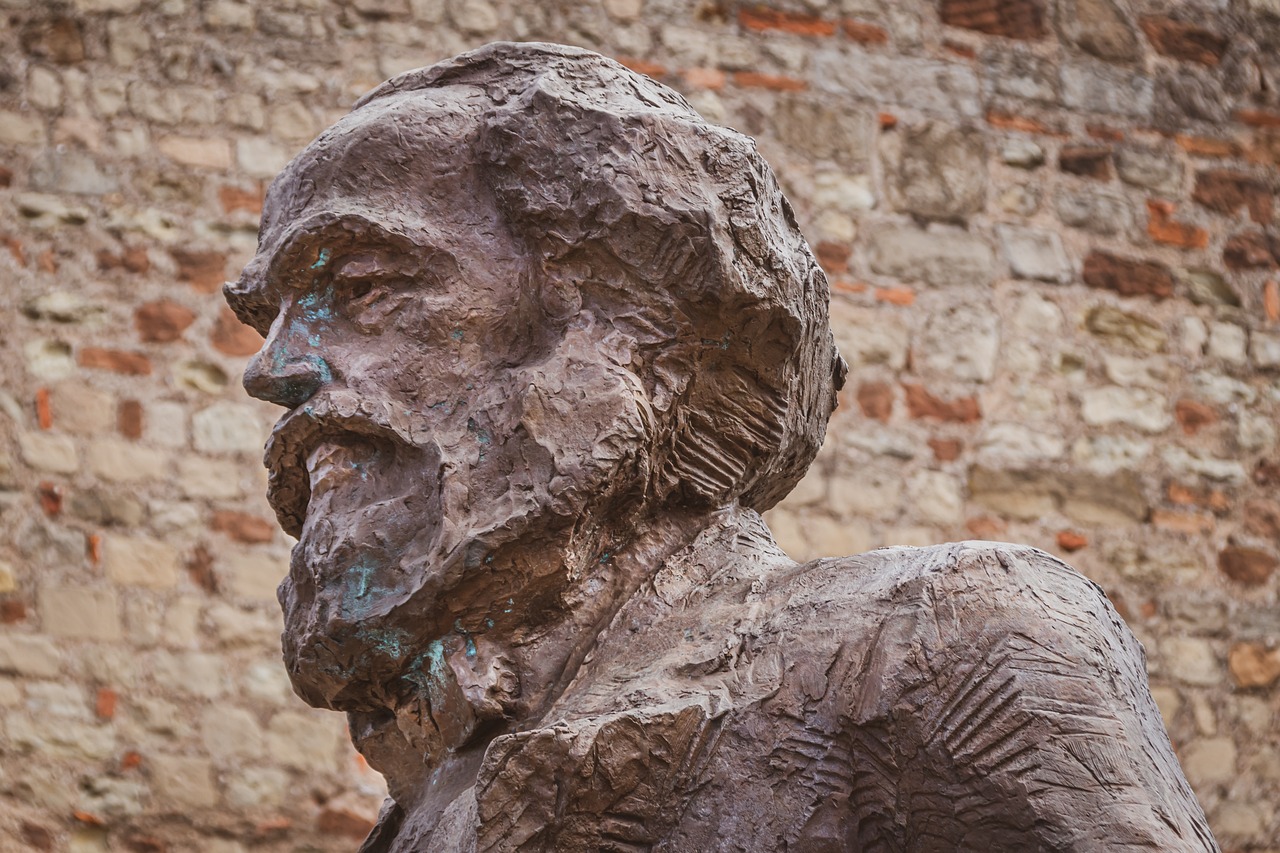
Marxism's Influence on Political Movements
Marxism has profoundly shaped the landscape of political movements across the globe. Its core tenets have served as both a blueprint for revolutionary action and a critique of existing power structures. From the bustling streets of Russia during the Bolshevik Revolution to the fervent protests in Latin America, Marxist ideology has inspired countless individuals to rise against oppression and inequality. But what exactly has driven this widespread adoption of Marx's ideas? The answer lies in the fundamental appeal of his vision for a more equitable society.
One of the most significant impacts of Marxism is its role in the establishment of communism and socialism as viable political ideologies. These movements have, in various forms, sought to implement Marx's critique of capitalism, advocating for the redistribution of wealth and the dismantling of class hierarchies. For instance, the Russian Revolution of 1917 was heavily influenced by Marxist thought, leading to the creation of the Soviet Union, where the state aimed to abolish private property and promote communal ownership. Similarly, in China, Mao Zedong adapted Marxist principles to fit the unique socio-political landscape of his country, resulting in the establishment of a communist regime that sought to empower the peasantry.
However, the influence of Marxism extends beyond just communism and socialism. It has also permeated various leftist movements that, while not strictly adhering to Marxist doctrine, have drawn inspiration from his ideas. For example, the civil rights movements in the United States and anti-colonial struggles in Africa have often invoked Marxist critiques of imperialism and capitalism as tools of oppression. These movements highlight the adaptability of Marxist thought, showing how it can be interpreted and applied in diverse contexts to address specific injustices.
To illustrate the breadth of Marxism's influence, consider the following table that outlines key political movements inspired by Marxist ideology:
| Movement | Country/Region | Key Figures | Outcome |
|---|---|---|---|
| Bolshevik Revolution | Russia | Vladimir Lenin, Leon Trotsky | Establishment of the Soviet Union |
| Chinese Communist Revolution | China | Mao Zedong | Establishment of the People's Republic of China |
| Cuban Revolution | Cuba | Fidel Castro, Che Guevara | Establishment of a socialist state |
| Sandinista Revolution | Nicaragua | Daniel Ortega | Overthrow of Somoza dictatorship |
Moreover, in contemporary politics, Marxist ideas continue to evolve, influencing various movements that advocate for social justice, environmental sustainability, and economic equality. In many cases, these movements have reinterpreted Marx's theories to address pressing issues such as climate change and racial inequality. For instance, the concept of eco-socialism merges environmental concerns with Marxist critiques of capitalism, arguing that the capitalist system's relentless pursuit of profit is fundamentally at odds with the health of our planet.
In summary, Marxism's influence on political movements has been both profound and multifaceted. It has inspired revolutions, shaped ideologies, and continues to resonate with activists today as they seek to challenge the status quo. Whether through the lens of communism, socialism, or more contemporary interpretations, the essence of Marx's critique of capitalism and his vision for a classless society remain relevant in the ongoing struggle for justice and equality.
- What is Marxism? - Marxism is a socio-political and economic theory that critiques capitalism and advocates for a classless society.
- How did Marxism influence the Russian Revolution? - Marxist ideology provided the foundation for the Bolshevik Revolution, leading to the establishment of a communist government in Russia.
- Are there modern interpretations of Marxism? - Yes, contemporary movements often adapt Marxist ideas to address current issues like social justice and environmental concerns.
- What is eco-socialism? - Eco-socialism is a political philosophy that combines ecological concerns with socialist principles, advocating for sustainable practices that challenge capitalism.
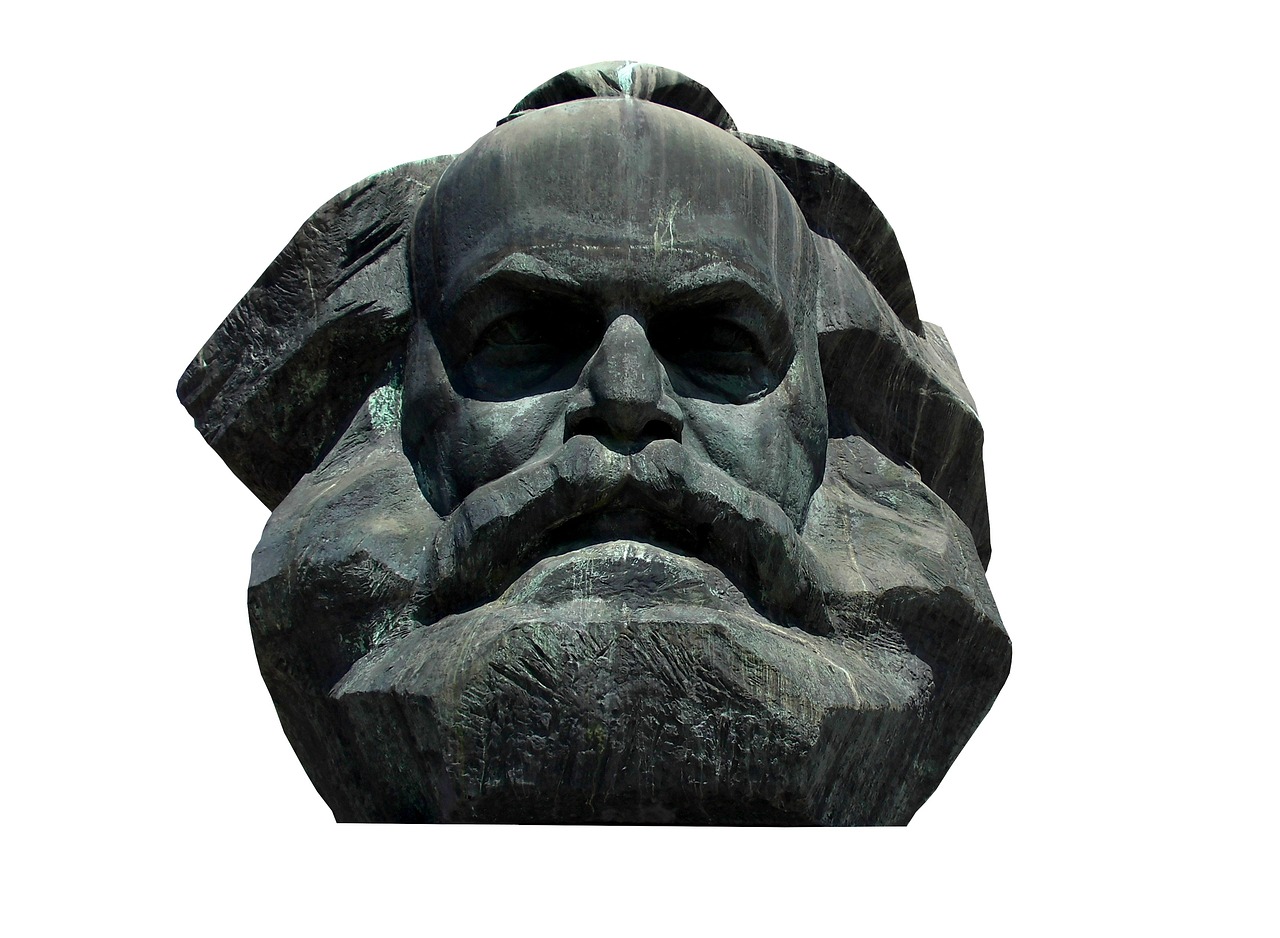
Communism and Socialism
Communism and socialism are often seen as the fruits of Karl Marx's philosophical labor, yet they are not mere replicas of his ideas; rather, they are interpretations that have evolved over time. At their core, both ideologies advocate for the collective ownership of the means of production, challenging the capitalist ethos that prioritizes individual profit over communal welfare. But what does this really mean for society? In essence, it suggests a radical shift from the norm, where wealth and resources are distributed more equitably among the populace.
To understand how Marx's thoughts were transformed into political movements, we must first look at the fundamental principles that these ideologies share. Both communism and socialism stem from the belief that capitalism inherently leads to inequality and exploitation. They argue that the working class, or proletariat, must rise against the bourgeoisie—the capitalist class that owns the means of production. This class struggle is not just a theoretical concept; it has been the catalyst for many revolutions throughout history, from the Russian Revolution of 1917 to the Cuban Revolution in 1959.
However, it's crucial to note that while communism seeks to establish a classless society where all property is publicly owned, socialism allows for a degree of private ownership. This distinction is vital because it reflects the varying degrees of change that each ideology proposes. For instance, socialism might advocate for social welfare programs and government regulation of industries, aiming to reduce inequality without completely abolishing capitalism. In contrast, communism envisions a complete overhaul of the socio-economic system.
Here’s a quick comparison of the two ideologies in terms of key aspects:
| Aspect | Communism | Socialism |
|---|---|---|
| Ownership | Collective ownership of all means of production | Public ownership with some private enterprises |
| Class Structure | Aim for a classless society | Recognizes class but seeks to reduce inequality |
| Economic System | Planned economy | Mixed economy |
| Political System | Single-party state often | Multi-party democracy possible |
Throughout the 20th century, various movements adopted Marxist principles, leading to the establishment of socialist governments in countries like Sweden and Norway, which implemented welfare states that provide extensive social services. On the other hand, more radical interpretations led to the rise of communist regimes in the Soviet Union and China, where the pursuit of a classless society often resulted in authoritarian governance and significant human rights violations.
Today, the legacy of Marx's ideas continues to influence political discourse around the globe. In many Western democracies, socialist principles have found a foothold in progressive movements advocating for healthcare reform, income equality, and environmental justice. These modern interpretations of socialism often emphasize democratic processes, suggesting that the road to a more equitable society can be achieved through reform rather than revolution.
In conclusion, while communism and socialism share roots in Marxist philosophy, they represent different paths toward addressing the inequalities perpetuated by capitalism. Understanding these distinctions is crucial for grasping the complexities of contemporary political movements that continue to draw inspiration from Marx's revolutionary ideas. As we navigate the challenges of the modern world, the conversation around these ideologies remains as relevant as ever.
- What is the main difference between communism and socialism? Communism aims for a classless society with collective ownership of all means of production, while socialism allows for some degree of private ownership and focuses on reducing inequality.
- How did Marx's ideas influence political movements? Marx's critique of capitalism inspired various revolutions and the establishment of socialist governments, leading to significant changes in political landscapes worldwide.
- Are there modern examples of socialism? Yes, countries like Sweden and Norway implement socialist principles through extensive welfare programs and government regulation of industries.

Modern Interpretations and Adaptations
As the world evolves, so too do the interpretations of Marx's philosophy. In the 21st century, we witness a resurgence of interest in Marxism, but it's not the same as the rigid doctrines of the past. Instead, contemporary thinkers and activists have adapted Marx's ideas to address the complexities of modern society. This evolution reflects a broader understanding of class struggle, economic inequality, and social justice.
One of the most significant adaptations of Marxism today is its intersection with environmental issues. Many modern Marxists argue that capitalism's relentless pursuit of profit leads to environmental degradation. They advocate for a green socialism, where ecological sustainability is a core principle of economic and social organization. This perspective aligns with the growing awareness that environmental crises disproportionately affect the working class, thus intertwining ecological and class struggles.
Furthermore, the rise of technology and the gig economy has prompted a re-evaluation of Marx's ideas on labor. In the past, Marx primarily focused on the industrial working class, but today, we see a shift towards understanding the **precarious nature** of gig work and the exploitation of digital labor. Scholars and activists are now examining how technology can both empower workers and exacerbate inequalities, leading to discussions about the need for new forms of labor organization in the digital age.
Another adaptation involves the incorporation of identity politics into Marxist thought. Modern Marxists recognize that class is not the only axis of oppression; race, gender, and sexuality also play crucial roles in shaping individuals' experiences. This intersectional approach broadens the scope of Marxism, allowing it to resonate with a wider audience and address the multifaceted nature of oppression in contemporary society.
Moreover, the global landscape has changed dramatically since Marx's time. Today's Marxists often emphasize the importance of international solidarity among workers across borders. The rise of multinational corporations and global supply chains necessitates a unified response to exploitation that transcends national boundaries. This perspective encourages collaboration among diverse movements, fostering a sense of shared struggle against capitalism.
In educational and activist circles, there's a growing trend of Marxist pedagogy, where educators aim to instill critical thinking and awareness of social injustices among students. This approach seeks to empower young people to challenge the status quo, encouraging them to engage with Marxist theory as a tool for social change. By integrating Marxist concepts into discussions about race, gender, and environmental issues, educators are cultivating a new generation of activists who are equipped to tackle the challenges of our time.
Ultimately, the modern interpretations and adaptations of Marxism reflect a dynamic and evolving philosophy that seeks to remain relevant in a rapidly changing world. By addressing contemporary issues such as environmental justice, digital labor, and intersectionality, Marxist thought continues to inspire movements for social change. The challenge now is to harness these adaptations to create a more equitable and just society for all.
- What is modern Marxism? Modern Marxism refers to the adaptations and interpretations of Marx's ideas to address contemporary social, economic, and environmental issues.
- How has Marxism evolved in the 21st century? Marxism has evolved to incorporate discussions on intersectionality, environmental sustainability, and the impact of technology on labor.
- What is green socialism? Green socialism is an adaptation of Marxism that emphasizes ecological sustainability as a core principle of economic and social organization.
- Why is intersectionality important in modern Marxism? Intersectionality recognizes that class struggles are intertwined with issues of race, gender, and sexuality, allowing for a more comprehensive understanding of oppression.
- How can Marxism address global issues? Modern Marxists advocate for international solidarity among workers to combat the exploitation perpetuated by multinational corporations.
Frequently Asked Questions
- What is Marxism?
Marxism is a socio-political and economic theory developed by Karl Marx that critiques capitalism and advocates for a classless society. It emphasizes the struggles between different social classes, particularly the working class and the bourgeoisie, and aims to understand how these dynamics shape society.
- How did the Industrial Revolution influence Marx's ideas?
The Industrial Revolution brought about significant changes in society, including the rise of distinct social classes. This transformation highlighted the exploitation of the working class, which greatly influenced Marx's views on class struggle and the need for social change.
- What are the key texts of Marxism?
Two of the most important texts in Marxism are The Communist Manifesto and Das Kapital. In these works, Marx outlines his theories on capitalism, class struggle, and the potential for revolutionary change in society.
- How has Marxism influenced modern political movements?
Marxism has inspired numerous political movements worldwide, particularly socialist and communist ideologies. These movements have adapted Marx's ideas to address contemporary social and economic issues, leading to various reforms and revolutions throughout history.
- What are the contradictions of capitalism identified by Marx?
Marx argued that capitalism is inherently contradictory due to its focus on profit maximization, which leads to the exploitation of workers and economic inequality. He believed these contradictions would ultimately result in the system's downfall, paving the way for a classless society.
- Can Marxism be relevant in today's world?
Absolutely! Many contemporary leftist movements draw on Marxist principles to address issues like income inequality, workers' rights, and social justice. The adaptability of Marx's ideas allows them to remain significant in modern political discourse.














